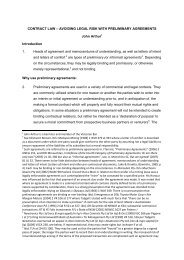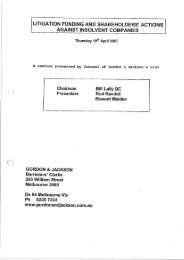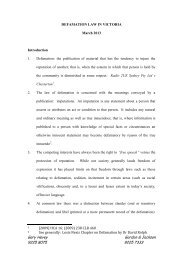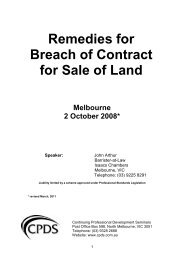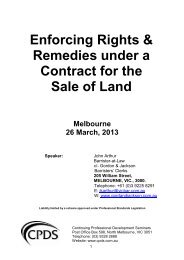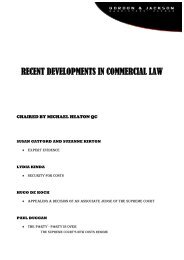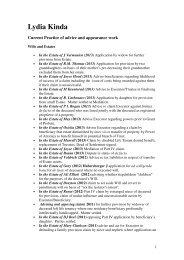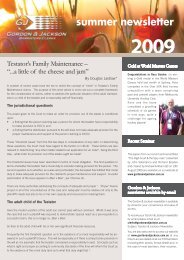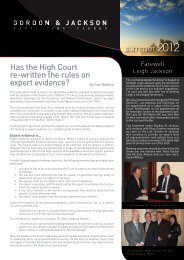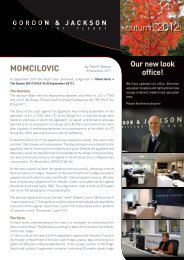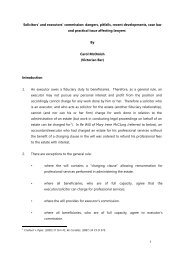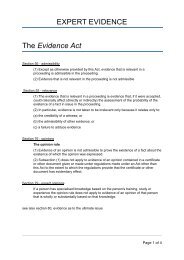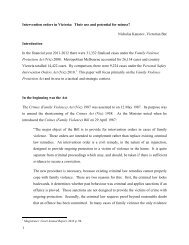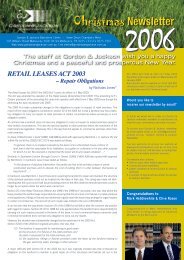Ethics and - Gordon & Jackson
Ethics and - Gordon & Jackson
Ethics and - Gordon & Jackson
Create successful ePaper yourself
Turn your PDF publications into a flip-book with our unique Google optimized e-Paper software.
Issues which can arise in Mediation<br />
Extremely aggressive advocacy <strong>and</strong> bargaining<br />
Hiding strengths of other case <strong>and</strong> weaknesses of own case<br />
Not alerting other side to existence of documents which would<br />
assist them<br />
Claiming “final offer” when it is not & other posturing<br />
As in dealing with the courts, at a court appointed mediation you may not<br />
keep secret an error that you know the other side may be relying on to their<br />
detriment <strong>and</strong> to your client’s advantage.<br />
Authority to settle – courts commonly make orders that persons with authority<br />
to settle should attend the mediation. Ignoring such an order, or concealing<br />
the fact that the responsible person either does not attend the mediation or<br />
does not have the requisite authority offends the rules <strong>and</strong> probably amounts<br />
to contempt of court.<br />
For many clients attending a mediation is as emotional as appearing in court,<br />
often they are not prepared for what is happening or likely to happen. Apart<br />
from the opening statement <strong>and</strong> discussion, the rest of the mediation is<br />
between the key parties <strong>and</strong> their willingness to concede points or position.<br />
Whilst settlement is to be encouraged <strong>and</strong> clients made aware of costs<br />
consequences in proceeding to the next step in litigation, neither should they<br />
be harassed either by their own legal representatives or the other side’s.<br />
A settlement at mediation has to be settling, not unsettling.<br />
Conclusion<br />
In conclusion I think our position as lawyers to deal ethically <strong>and</strong><br />
professionally can be summed up with the following cases:<br />
In Clyne v NSW Bar Association (1960) 104 CLR 186 at 200, the court ruled<br />
that “An advocate owes a duty to his client. He must advance <strong>and</strong> protect the<br />
client’s interest to the best of his skill <strong>and</strong> diligence.”<br />
Acting for clients is a privilege <strong>and</strong> carries with it responsibilities to always act<br />
ethically in all areas of the work <strong>and</strong> in ensuring that we are competent to<br />
perform the task we have been called upon to do.<br />
Lydia Kinda<br />
Douglas Menzies Chambers<br />
25 September 2012<br />
20



